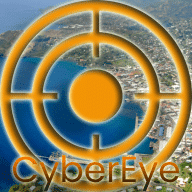
Venezuelan President Nicolás Maduro has directed the country’s state-owned enterprises to begin exploring and exploiting oil, gas, and mineral resources in Guyana’s Essequibo region, a disputed territory claimed by Venezuela. This move follows Maduro’s victory in a referendum to claim sovereignty over Essequibo, which is larger than Greece and rich in natural resources.
Maduro’s directive includes creating local subsidiaries of Venezuelan public companies, such as oil giant PDVSA and mining conglomerate Corporación Venezolana de Guayana, to operate in the region. However, it remains unclear how Maduro plans to enforce jurisdiction over Essequibo, with a law to officially declare it part of Venezuela yet to be discussed by the National Assembly.
In response, Maduro also announced the formation of a new Comprehensive Defense Operational Zone (Zodi) for Essequibo, indicating a militarized approach to the disputed area. This decision comes despite the International Court of Justice’s recent order for Venezuela to refrain from changing the status quo in the region until it rules on the competing claims of Venezuela and Guyana.
The Essequibo region, accounting for two-thirds of Guyana’s territory, has been a long-standing point of contention between Venezuela and Guyana. Venezuela’s renewed interest in the area, particularly after ExxonMobil discovered oil off the Essequibo coast in 2015, has intensified the dispute.
The referendum’s outcome, with reports of low voter turnout and skepticism about the official participation figures, raises questions about Maduro’s government’s legitimacy and its approach to internal and external challenges. Maduro promoted the referendum as a patriotic act, employing various tactics to garner public support.
As Venezuela prepares for its presidential elections in 2024, this development and its potential implications for regional stability and international relations are drawing attention from neighboring countries and global observers. Brazilian President Luiz Inácio Lula da Silva has expressed hope for a peaceful resolution, emphasizing the need for common sense and stability in South America.


